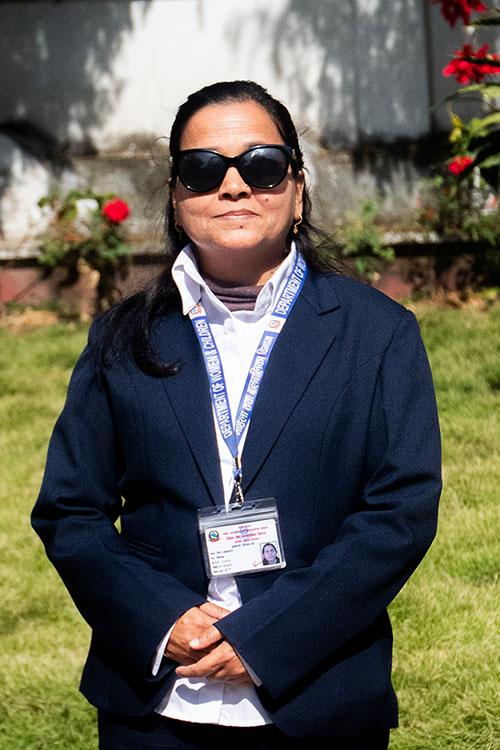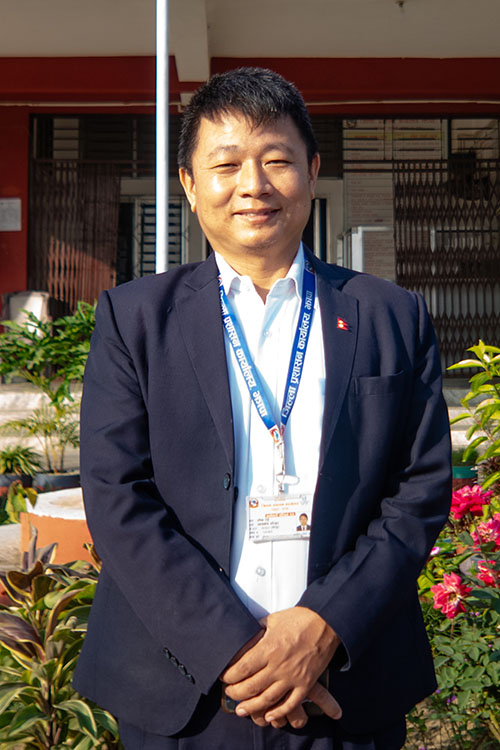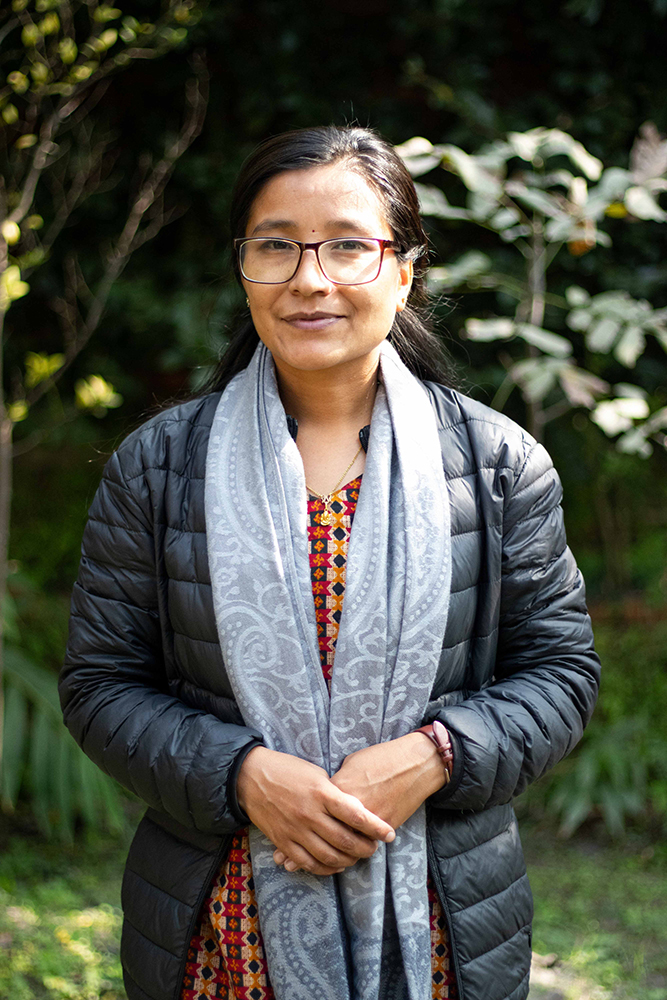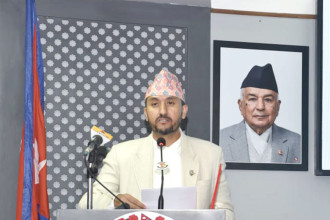KATHMANDU: Hema Thapa, Neera Adhikari, Padmanath Atreya, Pratik Rai and Rabina Maharjan have been selected as the top five Integrity Icons for 2023.
Integrity Icon is the initiative of Accountability Lab Nepal to actively promote the development of accountability mechanisms by identifying exemplary government officials. The organisation has continued with the Integrity Icon campaign for the past 10 years.
A judging committee comprising Suryanath Upadhyaya, former Chief Commissioner of the Commission for the Investigation of Abuse of Authority (CIAA); Kashiraj Dahal, Public Administration Expert; Jiwan Prabha Lama, former Secretary of the Government of Nepal; and Sucheta Pyakuryal, Director at the IIDS Centre for Governance, selected the top five Integrity Icons from 466 nominations from across the country.
The Integrity Icon campaign was initiated realising that government mechanisms and those who work within the system are equally crucial to fostering good governance and the rule of law, according to Accountability Lab Nepal. Similarly, the dedication of the officials in vital sectors like health, education, drinking water, and security further enhances citizens’ experience and builds trust in the system.
Recently, the government released its one-year progress report, featuring notable achievements. One of the major accomplishments is the steps taken against corruption and irregularities, including the Bhutanese refugees scandal, the Lalita Niwas land case, and the gold smuggling. It is evident from this report that governance and the rule of law are essential for the overall development of the country.
Integrity Icons for 2023

Hema Thapa, Hospital Nursing Incharge, Narayani Hospital, Birgunj:
Thapa has dedicated 28 years of service to Narayani Hospital in Birgunj. Thapa is known for her selfless nature. Some see her as a support for the helpless, others know her as a catalyst for change, and many find her truly inspirational. She was given the responsibility of the Neonatal Intensive Care Unit (NICU) and within two years, she successfully met all the government’s standard requirements for the NICU, including the installation of an oxygen pipeline and the establishment of a Kangaroo Mother Care (KMC) unit. The NICU also expanded from five to ten beds.
Thapa has been serving as the focal person for the One-stop Crisis Management Centre (OCMC) since 2022. She transformed the centre that was once initially confined to a small room and merely in a name, into a fully functional entity. During the Covid 19 pandemic, she came forward to overcome challenging tasks. Further, she was the first in the hospital to receive the initial COVID-19 vaccine injection, setting an example for others.

Neera Adhikari, Director, Department of Women and Children:
Adhikari’s name is unanimously considered when it comes to disability-friendly policies. The Disability Rights Act did not include provisions that specified women and only the subject of personal disability was mentioned. With her efforts, when the act was amended, a clause was added to address the unique situation of women with disabilities. She is also leading the practice of creating a paperless office.
In addition, she made changes in the numerical survey, a practice of the government before introducing any programs, and added more pertinent qualitative questions such as: Has the government successfully implemented programmes tailored for women? What is the effectiveness of these government initiatives for women? What kind of programs are more effective?

Padmanath Atreya, Horticulture Development Officer, Temperate Horticulture Development Centre, Marfa, Mustang:
Many people seeking service do not feel like meeting government officials. When they do, they expect it to be full of challenges and form preconceived notions of all kinds of hassle. Amidst all, Atreya is an exception. First, he is known for his outreach efforts through videos, books, and social media as he effectively communicates agricultural information to farmers. Secondly, he is easily available at any time and by any means when needed by a service-seeker. He is currently working in Mustang, but there are examples of youth returning to Nepal from abroad after following him and people coming from Rolpa to Mustang to get the service. Beyond knowledge dissemination through effective communication, his contribution to the agricultural sector includes producing high-quality apple plants in Mustang using tissue culture technology which is done for the first time in Nepal.

Pratik Rai, Administrative Officer, District Administration Office, Jhapa:
Rai believes that the system should operate according to organizational rules and regulations. He wants to ensure that the service-seekers get the services conveniently by following the rule of law. He has won the hearts of the service-seekers by efficiently managing the crowd in the Non-Tourist Visa section of the Department of Immigration. Similarly, as Administrative Officer at the District Administration Office Udaipur, he had placed tables and chairs behind the room of Non-Gazetted 1st Class and 2nd Class Officials so that the service-seekers did not have to wander around to seek services.
At present, Rai is based at the Citizen Copy Section of the District Administration Office, Jhapa. He organised citizens’ schedules that were unmanaged. Since it took a lot of time and effort, he managed the files on holidays and evenings after office hours. Not only has he satisfied service-seekers with his work, but has also motivated colleagues to collaborate effectively. The colleagues are also deducting their lunch hours to get the work completed.

Rabina Maharjan, Principal, Manamaiju Secondary School, Tarakeshwor, Kathmandu:
All the guardians want their children to be able to compete in the global community but, they are not confident that their children's enrollment in public school can make it possible. So, their last option becomes a private school. However, Maharjan is an example of how efficient leadership can not only change the general perception but also save the reputation of government schools. In her leadership, students who were initially disinterested in mathematics started scoring over 50%.
Many students who had dropped out of school for multiple reasons returned. Maharjan is highly concerned about the quality of her school and that it should not be lower than any private school. For that, she focused on improving extracurricular activities and school management along with education quality. Students in her school have formed a children's club and started taking its leadership on their own. Along with creative writing, students have also started maintaining personal journals. All the efforts of Maharjan not only helped to increase the confidence of students but were also reflected in the larger community as an increment in the number from 500 to 833 under her leadership.





